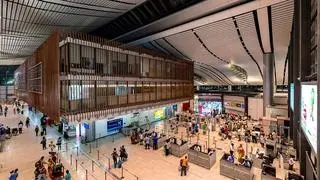The aviation market is poised for the entry of new players, including Akasa and Jet Airways, with asset cost at an all-time low, talent in abundance, and incumbent airlines struggling with legacy issues.
The new airlines will be able to operate with reduced costs at a time when passenger traffic is set to rebound.
Recently, Rakesh Jhunjhunwala had decided to invest in Akasa, an airline started by the former CEO of Jet Airways, Vinay Dube. Jet Airways is also looking to restart operations by the end of this year under its new owners, Kalrock-Kalan consortium. This comes at a time when all incumbent airlines are facing huge headwinds and increasing losses. Aviation is a sector in India where at least 50 players have shut shop in the past three decades.
Face headwinds
But according to Koushik Jagathalaprathaban, Partner, AT-TV, a consultancy firm, the market is extremely ripe at the moment for a new player to enter, especially “with asset cost at an all-time low, talent in abundance and airlines unable to reset their cost bases”.
IndiGo, SpiceJet and Vistara have been negotiating lease rentals, deferring payments to vendors, and cutting down on employee costs.
Pilots lose jobs
This is a boon for start-up airlines, according to experts, to get good talent at a lesser cost. Vinamra Logani, Head of Operations for Sarin & Co, pointed out that post Jet Airways’ grounding in 2019, several pilots were jobless.
With the pandemic at its peak, several Indian pilots employed by Gulf airlines, were also laid off. In the current scenario, this would be extremely beneficial to the start-ups when it comes to hiring good talent.
Moreover, Original Equipment Manufacturers (OEMs) such as Boeing, Airbus and Embraer will be more than willing to negotiate for a large aircraft order. Even if they were to go in for the SLB (sale and lease back) route, lessors will be available to cut them a better deal, said Logani.
Even though existing players will try to reduce costs, they will not have a vast difference to the pre-pandemic cost base, “while a new entrant can set up a new cost base and, hence, has a chance for being more profitable”. This is the potential AT-TV believes Junjunwala sees.
But Logani said that there is more besides the current low costs. A major boon for the new entrants, according to Logani, is that despite the pandemic, Indian airports continued to expand capacity. Both Delhi and Bengaluru airports are getting their fourth and second runway soon. In the next few years, Navi Mumbai airport, too, is likely to be operational.
“So, for any start-up airline, landing slots at key airports won’t be a paucity, which is extremely important for new airlines,” said Logani.
Price-sensitive market
From a market point of view, Logani said that even today only four per cent of Indians fly. Since India is a price-sensitive market, the new ultra, low-cost carriers with a cleaner balance sheet, will be better placed, whereas existing airlines are still looking to raise cash to stay afloat.
Kavita Chacko, Senior Economist, Care Ratings, and Logani believe the new entrants would be better positioned in this case to be able to offer more discounts.
“It was noticed in the recent past that there was a pent-up demand for travel. This means that though people do not have a lot of money, they’d want cheaper options to travel,” said Chacko.







Comments
Comments have to be in English, and in full sentences. They cannot be abusive or personal. Please abide by our community guidelines for posting your comments.
We have migrated to a new commenting platform. If you are already a registered user of TheHindu Businessline and logged in, you may continue to engage with our articles. If you do not have an account please register and login to post comments. Users can access their older comments by logging into their accounts on Vuukle.